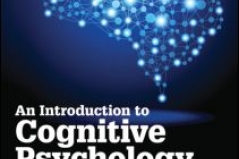Living in a safer world: Offering help when surrounded by others for the sake of reputation
keywords:
bystander effect / reversed bystander effect / violence
Living in a safer world: Offering help when surrounded by others for the sake of reputation
Almost every single day you hear and read terrifying news about violence. A football team kicks the arbiter to death (Mohamed, 2013), two teenagers beat up a 14-year-old boy (Lai, 2012), and a 17-year-old boy is stabbed to death (Mercer, 2013), to name just a few. With all this media attention on violence, it’s not strange that most people believe our world today is more dangerous than ever. Indeed, most people believe violence has increased the past decades. However, believe... / more
Revisiting the past can make the present a better place: The psychological and social benefits of nostalgia
keywords:
Nostalgia / emotion / Psychological health / Distress / Psychological threat
Revisiting the past can make the present a better place: The psychological and social benefits of nostalgia
For centuries nostalgia was viewed as an illness of the brain or mind. The consensus was that nostalgia caused physical and mental distress and by orienting people’s attention to the past, it prevented them from living fully and healthily in the present. However, this view lacked scientific support. In recent years, social psychologists have employed scientific methods to more systematically consider the psychological effects of ... / more
Smile! And I tell you where you’re from
keywords:
culture / emotion / facial expression / universality
Smile! And I tell you where you’re from
Although popular belief (and a heartwarming children’s song) holds that we all laugh in the same language, recent research has found that people are remarkably adapt at detecting local accents in the way that emotions are expressed. In this blog, I will review the research that suggests that the long-assumed universality of emotions is limited. / more
Smartphones: A threat to well-being?
keywords:
smartphones / recovery / resources / psychological detachment / well-being
Smartphones: A threat to well-being?
Nowadays, smartphones appear to play an inevitable role both in our work and private life. However, when it comes to work-related use, smartphones can hamper recovery and thus, pose a threat to our well-being. In this blog-post, I review recent studies on how and when potential side-effects may occur. / more
Why Are We Still Spanking Our Kids?

keywords:
spanking / physical punishment / corporal punishment / Aggression / violence
Why Are We Still Spanking Our Kids?
In this blog post we discuss legal, attitudinal and motivational factors that explain why we use physical punishment with children, specifically: (1) the United States, unlike most other countries, does not legislate against it, (2) attitudes condoning corporal punishment remain strong, particularly in some U.S. regions and cultures, (3) situational precipitating factors, impulsive appraisal, and cognitive scripts for aggressive punishment can interact to result in a spanking episode. / more
Consensual non-monogamy: Table for more than two, please
keywords:
consensual non-monogamy / polyamory / swingers / romantic relationships / attachment
Consensual non-monogamy: Table for more than two, please
Admit it: We have crushes, we have sexual fantasies, and sometimes we want to act on them—even when those crushes and fantasies aren’t about our current romantic partner. Most of the time, we ignore these crushes and our fantasies go unfulfilled. For some, cheating seems like an option. However, for others, it is totally okay to pursue these crushes and fantasies outside a relationship. Welcome to the emerging movement to rewrite the rules of romance: consensual... / more
Keeping the spark alive: The role of sexual communal motivation
keywords:
sexuality / couples / communal motivation / sexual satisfaction / romantic relationships
Keeping the spark alive: The role of sexual communal motivation
In new relationships, feelings of sexual desire for a partner come relatively easily. But, over time, partners’ sexual interests often change and it can be difficult for couples to keep the spark alive. In the beginning stages of relationships when partners are getting to know each other sexual desire tends to peak (Baumeister & Bratlavsky, 1999), and then often declines over time as partners become comfortable and committed in their relationship... / more
An Introduction to Cognitive Psychology. Proccesses and Disorders
An Introduction to Cognitive Psychology. Proccesses and Disorders
When I started incorporating cognitive paradigms into my research, I was looking for a book that would allow me to quickly navigate through cognitive theories and refresh my knowledge acquired in undergraduate cognitive psychology course. I was glad to find ”An Introduction to Cognitive Psychology” edited by David Groome and colleagues. / more
From candidate genes to genome-wide association studies

keywords:
candidate gene / genomewide association study / nature / nurture
From candidate genes to genome-wide association studies
In my last post I asked where the genes for psychological traits are, and argued that over the last two decades candidate gene studies have failed to identify genes that are reliably associated with complex behavioral phenotypes. In this post, I will discuss more recent whole genome methods, such as genome-wide association studies, and what we have learned from these. / more
No strings attached: Are “friends with benefits” as complicated in real life as they are in the movies?
No strings attached: Are “friends with benefits” as complicated in real life as they are in the movies?
Many people become “friends with benefits” to avoid drama and to have sex without getting tied up in emotions; however, the reality is that having a friend with benefits often becomes complicated. Why is that, and is there anything you can do to avoid these complexities? In this article, we will explore the science behind friends who decide to have sex.
“No relationship. No emotions. Just ...
/ more

